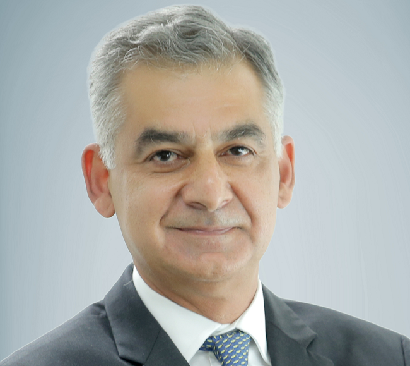Vietnam turns semiconductor vision into action
The global semiconductor industry is being reshaped by geopolitical tensions, shifting supply chains, and the surge of digital technologies.




For mid-corporates in ASEAN looking to expand across the region, Vietnam offers a wealth of opportunities thanks to its growing domestic market, young and well-educated workforce, and rising middle-income class.

These are the winning factors that we believe will power ASEAN’s future growth.
Vietnam belongs to the ‘7 per cent club’ or those countries that Standard Chartered forecasts will deliver GDP growth rates of over 7 per cent through the 2020s, thereby doubling the size of their economy every 10 years. One driver of Vietnam’s success will be its high level of foreign direct investment (FDI). Many overseas businesses have already recognised Vietnam’s potential with FDI reaching a record $19.1 billion in 2018, up 9.1 per cent year-on-year, and achieving a 69.1 per cent on-year increase in the first five months of 2019.
This strong performance is thanks in part to Vietnam’s position as one of ASEAN’s most open economies. The country has 26 Free-Trade Agreements (FTAs), including the Comprehensive and Progressive Agreement for Trans-Pacific Partnership (CPTPP), opening the door to plenty of new opportunities for mid-corporates in the region that choose Vietnam as a base. This strong trading environment will be enhanced when Vietnam’s FTA with the European Union comes into force later this year.
Vietnam also enjoys strong demographics that lend credibility to its long-term growth prospects. For instance, its young, educated population is digitally savvy. Not only does this create a strong foundation for an effective workforce, it is also driving demand for retail and consumer services, one of the industries that we believe will have the most far-reaching impact on ASEAN’s growth prospects.
Growth industries
The retail and consumer services industry is a key economic pillar, with revenue rising 11.7 per cent in 2018 to $191 billion. And it offers plenty of potential for ASEAN mid-corporates with the country’s wholesale and retail sector attracting FDI worth $3.37 billion in 2018, accounting for 10.3 per cent of total FDI.
A second significant sector for ASEAN’s future prosperity is manufacturing. With FDI growing at 11 per cent per year in the five years to 2018, this has long been an important industry in Vietnam thanks to its cost-competitive labour force and the government’s support of the supply industry. Over half the $100 billion of FDI has gone into manufacturing since 2013, and Standard Chartered expects incoming investments to the sector to remain high in the medium term.
Rounding out the trio of ASEAN’s important industries is infrastructure. Vietnam’s government has pledged to spend $920 million on infrastructure by 2020 while renewable energy is expected to be a strong focus over the next five years.
Strategies for success
ASEAN’s mid-corporate sector is especially well-placed to capitalise on Vietnam’s improving economy, demographics and development. It has a stronger capacity to fund innovation than smaller businesses and a more agile approach than larger multinationals.
And it is key for mid-corporates to adopt the strategies that will deliver the best results. Strategies such as smart operations or the use of technology can help improve productivity and reduce costs. For example, Vietnam has emerged as a key centre for Business Process Outsourcing while the government’s continued investment in STEM education (science, technology, engineering and mathematics) is helping industries like electronic manufacturing to flourish in the country.
To seize the opportunities, mid-corporates need to partner with a financial institution that understands Vietnam’s business landscape and offers a comprehensive ASEAN and global network that can support firms as they expand across borders, and help them navigate local nuances.
Ensuring effective cash management is one of the first challenges companies face when establishing themselves overseas. From automating collections, payments and reconciliation, to providing straight-through processing or helping set-up a centralised treasury team, Standard Chartered offers a full range of services to help mid-corporates improve their capital and liquidity management.
For example, when one of South Korea’s biggest conglomerates was expanding into Vietnam, it needed an established banking partner to address its full suite of cash management requirements. To help boost efficiency and speed up processing, we provided innovative collections and payments solutions. These included adding a virtual accounts function to its cash pick-up, enabling the company to identify sales turnover of each store and each business line, and mobile wallets collections.
As the only international bank present throughout ASEAN, and having been located in seven of the 10 markets for over 100 years, our long history in the region puts us in good stead to partner companies across a wide range of sectors seeking to grow in ASEAN.
From fast-growing industries to strong demographics, Vietnam’s economy presents a compelling case for mid-corporates wanting to expand across the region and help lead ASEAN to a strong and prosperous future.
*The article reflects the view of Nirukt Sapru, CEO of Standard Chartered for Vietnam and ASEAN & South Asia Cluster Markets.
The global semiconductor industry is being reshaped by geopolitical tensions, shifting supply chains, and the surge of digital technologies.
The change in APA approval authority is expected to shorten processing time and enhance business proactiveness in international tax negotiations.
As hybrid cloud systems grow more complex, Vietnamese enterprises are struggling to detect cybersecurity threats moving laterally within their own networks.
The submission of the draft resolution on Vietnam’s international financial center to the National Assembly heralds a new developmental era for the country.
More than just running a 5-star resort, Kristian Petersen is redefining the art of hospitality with a humane and sustainable leadership philosophy.
For Tyna Huynh, co-founder of Drinkizz, organic is not just a food choice but a way of life that fosters a deep connection between people, nature and community.